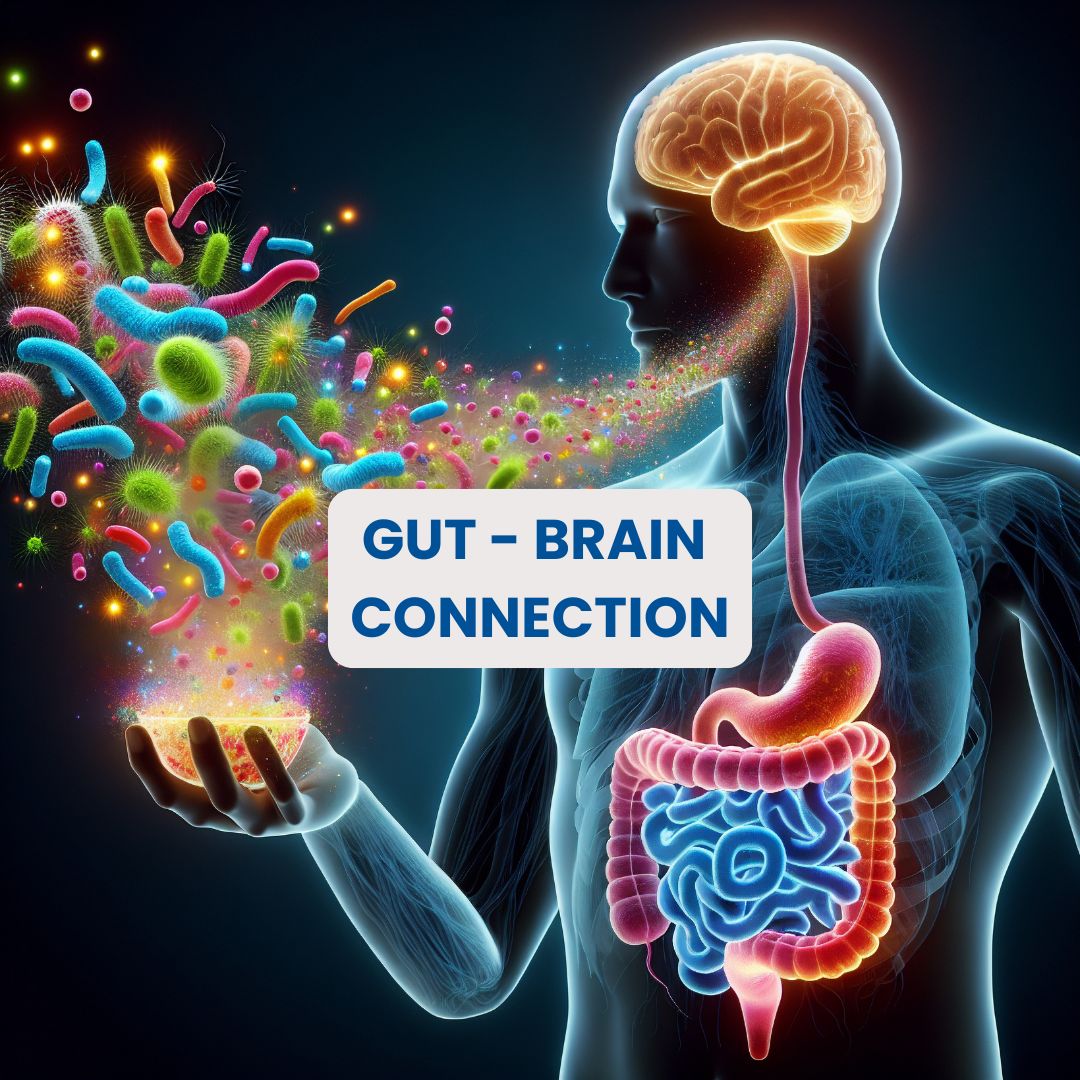Recently, the connection between gut health and mental health has gained significant attention. Research increasingly shows that gut health isn’t just about digestion—it also plays a critical role in mental well-being. Therefore, understanding how gut health affects mental health can help improve mood, reduce anxiety, and support more serious mental health conditions.
The Gut-Brain Axis: How gut health affects mental health
One of the most notable discoveries about how gut health affects mental health is the gut-brain axis. This communication network directly connects your gut and brain, allowing them to “talk” through nerves, hormones, and biochemical signals. Most importantly, the vagus nerve, a key component of this system, sends vital messages between the gut and the brain.
Consequently, a healthy gut can significantly influence how your brain processes emotions, stress, and cognitive functions. Additionally, your gut produces neurotransmitters like serotonin and dopamine, which help regulate your mood and overall sense of well-being.
Microbiome and Mood: Key Players
Furthermore, trillions of microorganisms, collectively known as the microbiome, reside in your gut. These organisms are essential for digestion, nutrient absorption, and immune function. However, what many don’t realize is that these microorganisms also directly impact mental health.
For example, an imbalance in gut bacteria, known as dysbiosis, can trigger inflammation linked to anxiety, depression, and cognitive decline. Conversely, a healthy and diverse microbiome boosts serotonin production and lowers cortisol levels, helping manage stress and maintain a balanced mood.
How Probiotics Improve Mental Health
Moreover, supporting gut health can have a direct and positive effect on mental well-being. For instance, probiotics, the beneficial bacteria found in certain foods and supplements, help restore balance in the gut microbiome. In fact, research has shown that specific strains of probiotics, such as Lactobacillus and Bifidobacterium, can reduce symptoms of anxiety and depression. These strains also improve mood, reduce stress, and enhance cognitive function.
At Bioteem40, our probiotics not only support digestive health but also target mental wellness. Packed with prebiotics, polyphenols, and micronutrients, our formula actively works to heal the gut and promote overall mental health.
Reducing Inflammation for Better Brain Health
In addition, chronic gut inflammation can lead to “leaky gut,” where toxins pass into the bloodstream. As a result, this immune response affects the brain, often leading to mood disorders such as depression and anxiety. Healing the gut lining and reducing inflammation can ease mental health symptoms, creating a more balanced emotional state.
Nutrition’s Role in the Gut-Brain Connection
Equally important is the role of nutrition in how gut health affects mental health. A diet rich in fiber, antioxidants, and healthy fats, such as omega-3s, supports the growth of beneficial gut bacteria. In turn, this leads to improved brain function. On the other hand, a diet high in sugar, processed foods, and unhealthy fats negatively impacts both gut and mental health.
Conclusion
In conclusion, the connection between gut and mental health is undeniable. By nourishing your gut with probiotics, reducing inflammation, and focusing on a nutrient-rich diet, you can take significant steps to improve both your digestive system and mental health. A healthy gut truly means a happier mind.
To support both your gut and mental health, consider trying Bioteem40’s probiotics. Our formula enhances your microbiome and provides foundational nutrition to promote emotional well-being, offering a natural solution to balance your mind and body.






